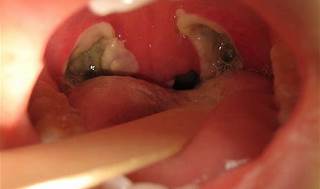A nurse is caring for a group of clients.
Which of the following findings should the nurse report to the provider?
swer and explanation
An 18-month-old toddler who has a heart rate of 68/min
An adolescent who has a BP of 132/82 mm hg
A 3-month-old infant who has a respiratory rate of 36/min
The Correct Answer is B
Choice A rationale
A rectal body temperature of 37.3 C (99.1 F) in a school-age child is within the normal range, so it does not need to be reported.
Choice B rationale
A heart rate of 68/min in an 18-month-old toddler is below the normal range (80-130 beats per minute). This could indicate a serious condition such as heart block or hypothermia and should be reported to the provider.
Choice C rationale
A blood pressure of 132/82 mm Hg in an adolescent is slightly elevated but within acceptable limits for a teenager, especially if the teenager was nervous or anxious during the measurement.
Choice D rationale
A respiratory rate of 36/min in a 3-month-old infant is within the normal range (30-60 breaths per minute), so it does not need to be reported.
Nursing Test Bank
Naxlex Comprehensive Predictor Exams
Related Questions
Correct Answer is C
Explanation
Choice A rationale
Pinpoint pupils are not a typical finding in an adolescent who has inhaled gasoline. Pinpoint pupils are more commonly associated with opioid use.
Choice B rationale
Hypothermia is not a typical finding in an adolescent who has inhaled gasoline. Inhalation of gasoline can cause central nervous system depression, leading to symptoms such as dizziness, confusion, and ataxia.
Choice C rationale
Ataxia, or lack of muscle coordination, can occur after inhaling gasoline. The gasoline vapors can depress the central nervous system, leading to symptoms such as dizziness, confusion, and ataxia.
Choice D rationale
Hyperactive reflexes are not a typical finding in an adolescent who has inhaled gasoline. Inhalation of gasoline can cause central nervous system depression, leading to symptoms such as dizziness, confusion, and ataxia.
Correct Answer is ["A"]
Explanation

The correct answer is choice a. Discourage the child from coughing.
Choice A rationale:
Discouraging the child from coughing is important because coughing can dislodge clots and cause bleeding at the surgical site, which is a common complication after a tonsillectomy.
Choice B rationale:
Providing cranberry juice to the child is not recommended because acidic juices can irritate the throat and cause discomfort or pain.
Choice C rationale:
Maintaining the child in a supine position is not ideal as it can increase the risk of aspiration. Instead, the child should be positioned on their side or with the head elevated to facilitate drainage and reduce the risk of aspiration.
Choice D rationale:
Administering an analgesic to the child on a scheduled basis is important for pain management, but it is not the most immediate action to take one hour postoperatively. Pain management should be part of the overall care plan.
Whether you are a student looking to ace your exams or a practicing nurse seeking to enhance your expertise , our nursing education contents will empower you with the confidence and competence to make a difference in the lives of patients and become a respected leader in the healthcare field.
Visit Naxlex, invest in your future and unlock endless possibilities with our unparalleled nursing education contents today
Report Wrong Answer on the Current Question
Do you disagree with the answer? If yes, what is your expected answer? Explain.
Kindly be descriptive with the issue you are facing.
